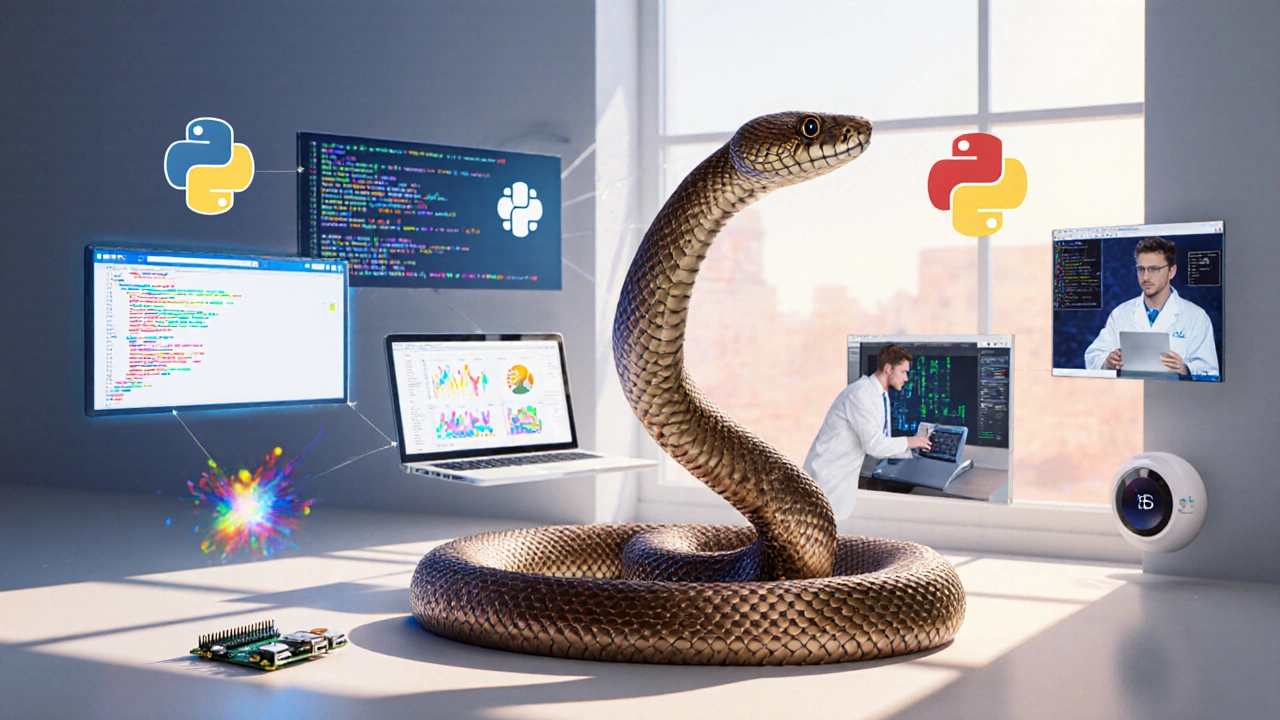Python in Industry
When working with Python in industry, the use of Python programming language across commercial and manufacturing sectors. Also known as Python for business, it bridges rapid development with powerful libraries, making it a go‑to tool for solving real‑world problems. Python in industry encompasses data science, automation, machine learning and web development, creating a versatile ecosystem that fuels innovation.
Key Domains Where Python Drives Value
One major pillar is Data Science, the practice of extracting insights from large datasets using statistical and computational methods. Python's libraries like pandas, NumPy and scikit‑learn let analysts clean, model and visualise data faster than traditional tools. This efficiency translates into quicker business decisions, higher ROI and a competitive edge for companies that adopt Python‑centric analytics pipelines.
Another critical area is Automation, the use of scripts and bots to perform repetitive tasks without human intervention. Python scripts automate everything from data entry to server provisioning, reducing errors and freeing staff for creative work. When Python in industry requires automation tools, teams often pair it with frameworks like Selenium or the Ansible Python API, speeding up workflows across IT, finance and manufacturing.
Machine Learning, the subset of AI that builds models to predict outcomes from data patterns heavily influences Python in industry. Libraries such as TensorFlow, PyTorch and XGBoost let engineers build predictive models that power recommendation engines, fraud detection systems and predictive maintenance. This blend of Python and ML empowers companies to shift from reactive to proactive strategies, cutting costs and improving customer experiences.
Web development is the fourth cornerstone. Web Development, the creation of dynamic websites and web applications using server‑side code benefits from Python frameworks like Django and Flask, which provide rapid scaffolding, security features and scalability out of the box. Enterprises use these frameworks to launch internal portals, e‑commerce sites and SaaS products, reducing time‑to‑market and maintenance overhead.
Beyond the tech stack, the career landscape around Python in industry is evolving fast. Professionals who combine domain knowledge—whether finance, health‑care or logistics—with Python skills command higher salaries and enjoy broader job prospects. Certifications, open‑source contributions and hands‑on project portfolios are the fastest ways to demonstrate competence and stay ahead of hiring trends.
All these facets—data science, automation, machine learning and web development—show how Python reshapes modern business processes. Below you’ll find a curated collection of articles that dive deeper into each use case, share practical tips, and highlight emerging tools. Keep reading to see how you can harness Python in industry for your own projects and career growth.
What Is Python Used For? Exploring Real‑World Applications
Discover the many ways Python is used today-from web apps and data science to automation, AI, IoT, and education-plus tools, examples, and getting‑started tips.
read more